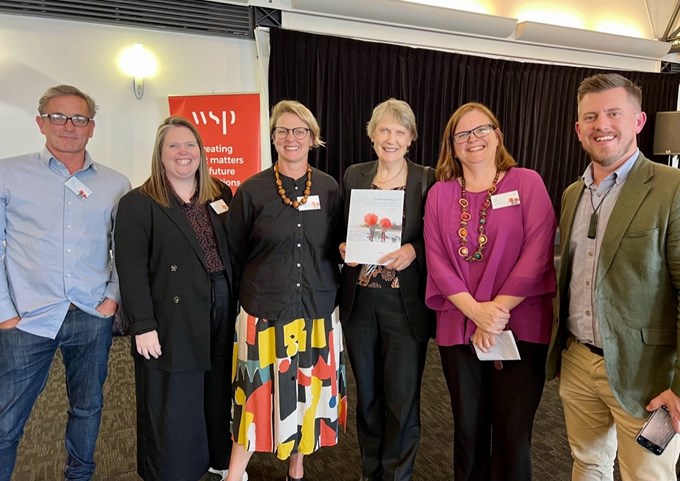A new report, published by the Helen Clark Foundation and engineering consultants WSP, stresses the essential need to work with communities to adapt to climate change.
In the report, Te Whakaoranga o te Puhinui (Puhinui stream regeneration programme in South Auckland) led by Eke Panuku is held up as a successful example of this meaningful way of working.
The health of the Puhinui stream and its capacity to absorb climate events deteriorated over the last century as its surrounding ecosystems disappeared. This led not only to loss of biodiversity, but also a loss of wellbeing for people living along its course.
The report finds that involving communities in climate adaptation efforts is just as crucial as finding the right engineering solutions for natural events, like flooding or storms.
Kari Mercier, WSP fellow and the report’s author, argues that “engaging meaningfully with communities in a spirit of true collaboration around climate change adaptation will bring multiple benefits, and failing to do so would be a critical mistake.”
Although Eke Panuku is the instigator of the Puhinui regeneration strategy, it is very much a collaboration between Te Waiohua Iwi, the Auckland Council whanau, crown agencies, community organisations and the culturally rich, unique, and diverse communities of Te Puhinui.
The purpose of the Te Whakaoranga o te Puhihui strategy – with its charter signed by key project partners – is to realise the regeneration of te Puhinui in a way that is inclusive, place sourced, culturally led and community fed. It outlines a roadmap for action which increases the influence, decision-making and active involvement of local stakeholders.
The ‘Empowered Communities Lead’ for the Puhinui project, Alex Whitcombe, spoke at the report launch about the power of connecting over a cup of tea and building trust and opportunities for locals to be empowered through the changes taking place in their neighbourhoods. Born and bred in South Auckland, the project is close to his heart.
Project partners and collaborators are busy bringing to life the strategy through a programme of both physical work and strategic initiatives. There is over $30m planned investment in the coming five years across the Puhinui catchment. Many of the work streams, such as creating new wetlands, cycleways, and significant native planting already employ many local South Aucklanders, and there will be many more job opportunities to come.
To read more about the ongoing work, Te Whakaoranga o te Puhinui - EkePanuku
To read the full report: A Shared Future - The Helen Clark Foundation


